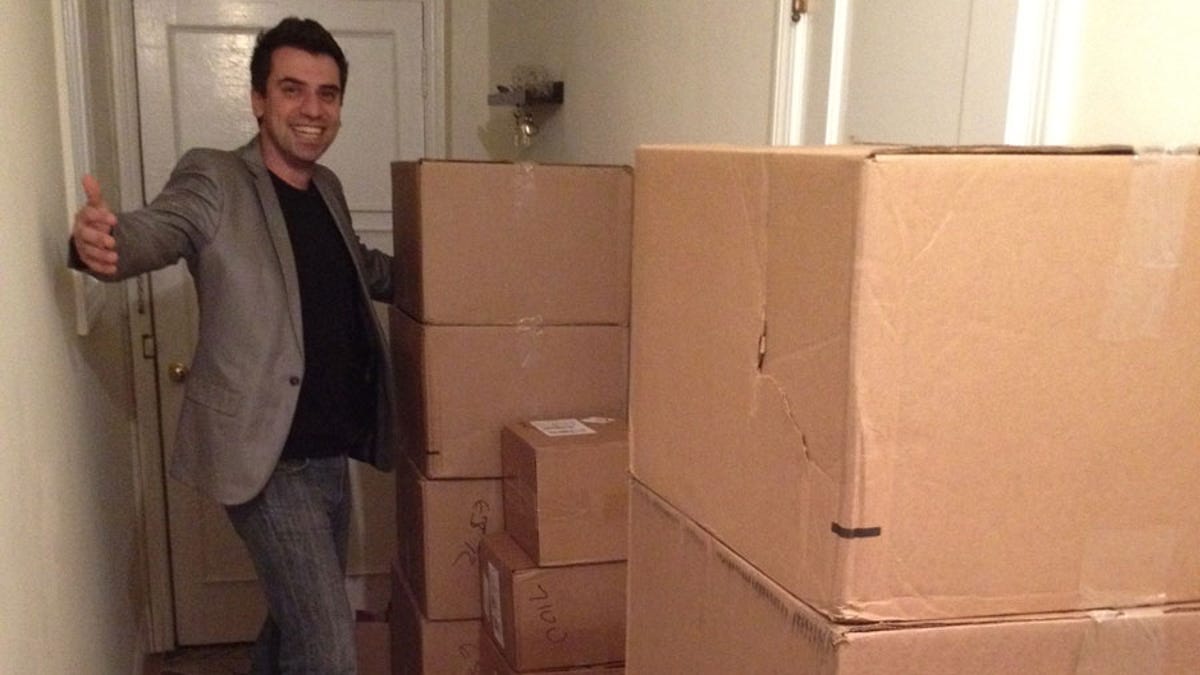How startup Backblaze survived a $349 hard-drive price crisis
To avoid breaking a promise not to raise its prices, the online backup company relied on employees and their families to scour the nation's retailers for 3TB drives.

What do you do when you have a 1,000-unit-per-month hard-drive habit -- then Thailand floods wipe out your supply?
In the case of online backup specialist Backblaze, whose business could have been crippled when the natural disaster last year raised the price of a $129 3TB drive to $349, you improvise.
The company turned employees, their friends, and their families into an ad hoc supply chain who scoured Best Buy, Costco, NewEgg, B&H Foto, and other retailers across the country for drives. And when they learned that external USB storage devices were actually cheaper than the drives alone, they set up an operation to "shuck" the cases the way Nebraskans shuck off cornhusks.
The result, according to Chief Executive Gleb Budman: Extremely labor-intensive procurement of 1,838 hard drives with more than 5.5 petabytes of capacity -- and a business that averted its own price-hike disaster.
Oh, and one more thing: some Backblaze employees, who pushed as hard as possible to buy drives despite retailers' limits of two per customer, are still banned from Costco.
The crisis arrived a year ago when the flooding severely cut hard-drive supplies and computing industry giants like Dell, Apple, and Hewlett-Packard worked to secure their own reserves. Backblaze has pledged to keep its $5-per-month unlimited backup service even as rivals move to pay-per-use plans, but the new prices threatened that promise.
"Tim [Nufire], our vice president of engineering, first told us that the flood in Thailand had affected some factories and drives were getting expensive and hard to acquire. My first thought was actually disbelief: with Seagate, Hitachi, WD [Western Digital], and Fujitsu all producing hard drives through globally distributed manufacturing plants with multi-billion dollar businesses at stake, I assumed a single flood in a single area couldn't bring the entire system to a grinding halt," Budman told CNET. "I was wrong."
The company didn't see an an urgent need at first, thinking the hard-drive price increase would be a blip.
"However, we fairly quickly realized how concentrated the hard-drive supply chain was and the damage it sustained, and started brainstorming ways to acquire drives," Budman said.
The first plan: Buying external drives at Costco and Best Buy. One early trip around the San Francisco Bay Area yielded 52 drives, enough to accommodate about two or three days' worth of Backblaze's ever-growing data needs.
But then came the limits of two drives per customer per day -- and the Costco bans on Backblaze employees.
The economics weren't looking good, Backblaze said in a blog post today about the difficulty:
We started doing "drive math": 2 drives a day per store, times 3 stores per day, times 5 "farmers," times 7 days a week is 210 drives. That would be sufficient, but in reality it didn't work out that way. Stores were stocking out of drives on a regular basis and we really couldn't farm every day, but we kept at it.
The next phase of the operation was drawing on a broader network. Yev Pusin warned his father in Des Moines, Iowa, that he might have to move back in if he didn't help -- and he came through with shipments of 50 or 60 drives at a time.
One friend of Budman's, Vladik Rikhter of NextPunch, got lucky when an online store neglected to limit his purchase. He picked up 80 3TB drives, which FedEx took half an hour to carry to his house and which Budman picked up on Christmas eve. The drives were worth more than the CEO's car.
The company set up a drive-farming site to track the best prices. Eventually, though, hard drive supplies eased.
The story illustrates the kind of plight that can hit a smaller company that may not know all of its risks. But the company has come out of the crisis wiser, Budman said.
"Part of the goal of raising our first venture capital round...was to have a cash buffer to weather such potential storms," Budman said.
Backblaze always had a buffer of new components and "storage pods" -- its 45-drive storage systems at the heart of the operation -- to handle future growth.
But it's financially tough to add more wiggle room, because hard drives only get less valuable as they sit around, and new hard drives typically are cheaper and have higher capacity. Because of that, just-in-time purchasing is really the best route, Budman said.
One thing that hasn't changed: buying drives from retailers. Until Backblaze needs 10,000 drives per quarter instead of today's 3,000, it can't set up direct purchase agreements from the hard-drive makers themselves.

